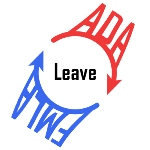 By: Jim Cline and Shanleigh Kennedy
By: Jim Cline and Shanleigh Kennedy
The Public Employment Relations Commission held that Whatcom County committed a refusal to bargain ULP by unilaterally deciding to deduct Paid Family Medical Leave Act premiums from wages without bargaining. PERC reasoned that since this deduction affected “wages” it was a mandatory subject of bargaining. Decision 13082-A: Whatcom County.
Whatcom County argued that since the Paid Family Medical Leave Act (PFMLA) required employers to deduct premiums, that had created a new “status quo.”
Whatcom County argued that since the Paid Family Medical Leave Act (PFMLA) required employers to deduct premiums, that had created a new “status quo.” It also argued that paying the premiums would be an unlawful unilateral increase to employee’s wages. But the Commission rejected that argument holding that, since the statute does not specify how the premiums are to be paid- whether completely by the employer, completely by the employee, or split between the two, the statute does not justify the employer imposing the deductions. It explained that deducting premiums from wages addresses wages, this is a mandatory subject of bargaining. It also explained that “every form of compensation for labor preformed, including alternative forms of compensation, including insurance, and agreements on how compensation is delivered.” It reasoned that employee contributions to PFMLA premiums are similar to employee premiums to health and other insurance premiums, which supports them being mandatory subjects of bargaining.
Whatcom County argued that paying the premiums would be an unlawful unilateral increase to employee’s wages
This case was initially closely watched but with the passing of time has been less impactful. Initially the Examiner ruled for the County, but the Commission reversed. The case involved a direct conflict between a poorly drafted PFMLA and the collective bargaining law. The PFMLA expressly provided that the relative amounts of the premiums were deductible but also indicated that the employer had to collect premiums upon expiration of the previous CBAs that were in place with the statute was adopted. The question that arose for many bargaining units, including the one in Whatcom County, is how the PERC mandate to maintain the status quo beyond expiration of the CBA until the bargaining process was completed would be harmonized with the PFMLA which indicated the employer had a duty to collect premiums. Most employers didn’t’ dispute that they were obligated to bargain future contributions; the issue was who would pay for the premiums during the interim before the successor contract was implemented.
By holding for the union, PERC demonstrated a couple points. First, the collective bargaining statute normally trumps other conflicting employment laws. Second the definition of bargaining “wages” is very broad.
Visit our Premium Website for more information on Public Sector Collective Bargaining Rights- Duty to Bargain.



